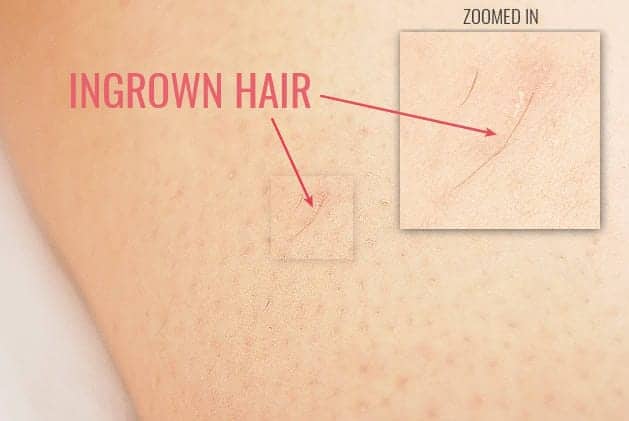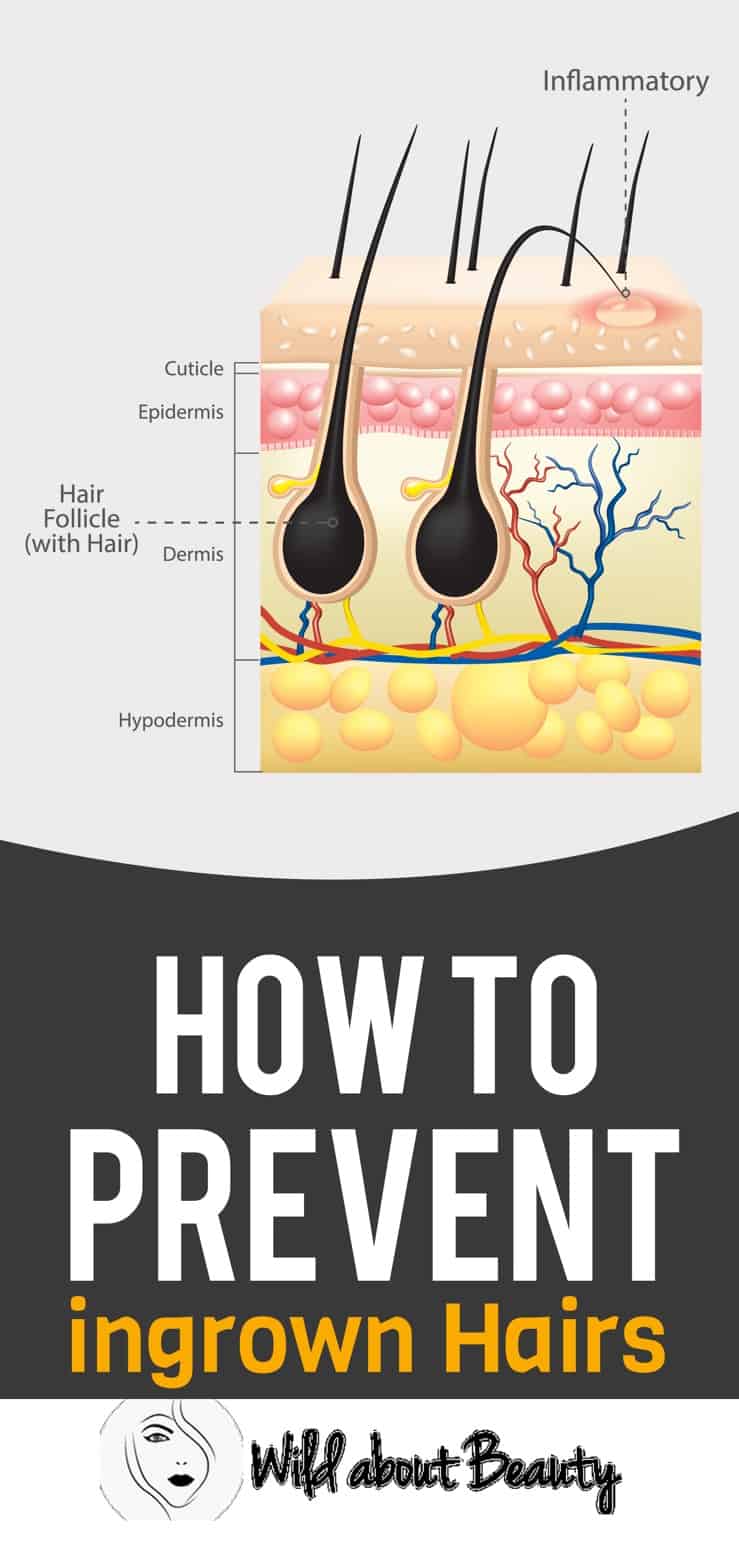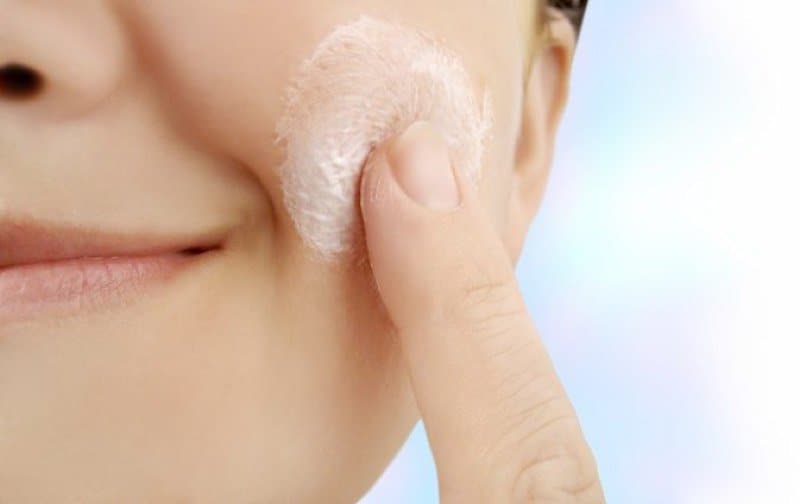Ingrown hairs can be an frustrating and uncomfortable issue to deal with. These bumps, often mistaken for pimples, are actually hairs that have grown sideways under the skin instead of upward and outward due to dead skin cells clogging the hair follicles. Although not a serious condition, ingrown hairs can still cause irritation and embarrassment.
Fortunately, there are a variety of preventative measures and treatments that can help alleviate this problem. By incorporating certain lifestyle changes and adopting the appropriate care routines, we can effectively minimize the occurrence of ingrown hairs and maintain a healthy, smooth complexion.
Chapter Overview
How Do Ingrown Hairs Look Like?

In most cases, ingrown hairs tend to go away on their own. However, there are various treatments available if they persist or become infected. We will cover medical, over-the-counter, and home remedies for treating ingrown hairs.
Medical Treatments:
- Steroid cream: Doctors can prescribe a steroid cream to reduce swelling and inflammation.
- Retinoids: These medications help remove dead skin cells and skin pigment clogging hair follicles, thus reducing ingrown hairs.
- Topical antibiotics: Rather than being ingested, these are rubbed onto the skin to prevent infection.
Over-the-Counter Treatments:
- Salicylic or glycolic acid: Exfoliating products containing these acids unclog hair follicles and keep them open.
- Benzoyl peroxide cream: Useful for acne, razor bumps, and ingrown hairs.
Home Remedies:
- Tea tree oil: Dilute with water or carrier oil and apply it to the affected area using a cotton ball to eliminate bacteria and reduce swelling.
- Sugar scrub: Combine sugar with olive oil or honey to create a natural exfoliating and moisturizing mixture. Gently massage it onto the affected area in a circular motion, then rinse with warm water.
- Baking soda paste: Mix 1 tablespoon of baking soda with 1 cup of water to form a paste. Apply this mixture to exfoliate your skin and reduce inflammation.
In some cases, a doctor may use a sterile needle, pin, or scalpel to carefully free the ingrown hair. Note that this should only be done by a professional to avoid infection or scarring.
For the best results, always follow proper hygiene and use the right tools and techniques to minimize the risk of ingrown hairs. When attempting any treatment option, discontinue use if problems worsen or irritation occurs. If you’re concerned about your skin, seek advice from a dermatologist or medical professional.
Can You Prevent Ingrown Hair?
Yes, prevention is key for most skin issues, and ingrown hairs are no exception. Here are several tips on how to prevent ingrown hairs:
- Exfoliate regularly: We recommend using an exfoliating scrub in a circular motion daily.
- Choose the right razor: Always opt for a sharp, single-blade razor.
- Prep your skin: Apply lubricating gel and wet your skin with warm water before shaving.
- Shave with the grain: Shave in the direction of hair growth.
- Minimize razor strokes: Try to use as few strokes as possible and rinse the blade after each stroke.
- Replace dull razors: A clean and precise cut is essential, so replace your razor when needed.
- Electric razor technique: Hold it slightly above the skin surface.
- Leave a little stubble: With a regular razor, don’t shave too close to the skin.
- Soothe your skin: Apply a cool washcloth post-shaving to reduce irritation.
- Explore alternatives: Consider other hair removal methods, such as laser hair removal, waxing, or electrolysis.
Following these tips will help in minimizing the occurrence of ingrown hairs while maintaining proper skin care.
What If Your Ingrown Hairs Are Infected?
When ingrown hairs become infected, we may notice painful, pus-filled bumps. It’s crucial to treat the infection, possibly through consultation with a doctor. We may be prescribed antibiotic ointment or wash, and in severe cases, oral antibiotics.
What To Avoid If You Have Pubic Hairs?
We recommend avoiding these actions for a cool and healthy pubic area and beard:
- Pulling or picking at ingrown hairs: risks infection
- Squeezing bumps: may cause infection and scarring
- Digging under the skin: if necessary, remove hairs gently
Should You Visit a Doctor?
In most cases, ingrown hairs are not a cause for concern, and there’s no need to visit a doctor or dermatologist every time they occur. Instead, focus on prevention by following guidelines to avoid ingrown hairs.
However, consider seeing a professional if:
- You frequently experience ingrown pubic hairs
- You have excessive pubic hair growth
These scenarios may indicate underlying health issues requiring attention and treatment from a doctor or dermatologist.


